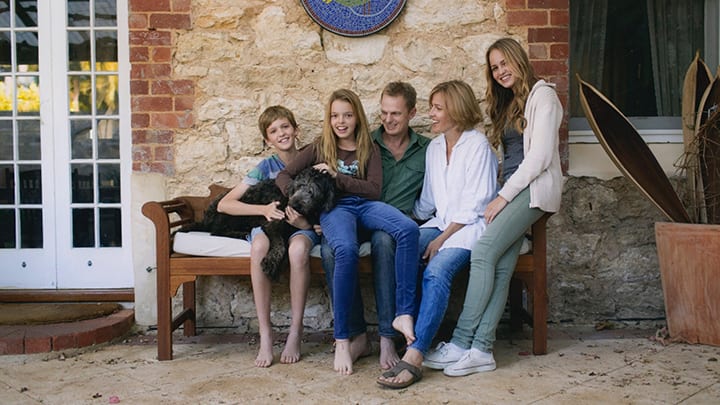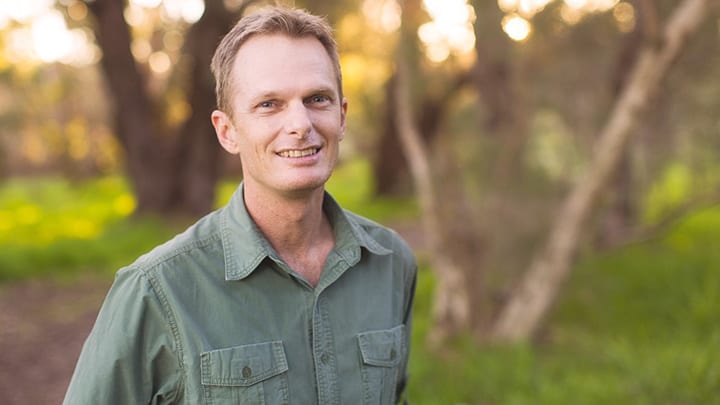21st century fatherhood can be a challenging, rewarding and complicated business. Changing expectations of how fathers participate in family life mean that many dads are more intimately involved with their children than previous generations, and new research is demonstrating just how important the father-child connection is to family functioning and wellbeing.
In his project, Paternal and Maternal Reflective Functioning in the Western Australian Peel Child Health Study, Dr Dawson Cooke, whose position at Curtin is funded by The Fathering Project, assessed how well families understood both their babies’ and their own mental and emotional states, and how the father-baby relationship was related to family functioning.
“I am particularly interested in the very early stages of the father-infant relationship because I believe if a good quality relationship is established from the start of a child’s life, this provides a resilient foundation for the father’s involvement throughout their lifespan,” Dr Cooke said.
“We assessed the parent capacity to consider mental states in the self and the infant, which is called ‘Reflective Functioning’ (RF) or ‘Mentalizing’. It’s all about thoughts, feelings and intentions, and how these influence behaviours.
“What we found was that the quality of family functioning was related to the fathers’ RF more than the mothers’ RF. Also, the quality of the mother-infant relationship was not predictive of the quality of their partner’s relationship with the infant – these two relationships were independent.

“[The fathers’] RF was also strongly related to men’s identification with the fathering role, more father-time with the child on weekends, and father’s parenting self-efficacy.
Dr Cooke, who is a Postdoctoral Fellow in the School of Nursing, Midwifery and Paramedicine, said the study results also indicated that fathers and mothers thought about, and interacted with, their babies in different ways and, in line with previous research, women seemed more adept at gauging the emotional and mental states of their children.
“The study showed that fathers indicated more prementalizing than mothers – meaning they scored higher in a measure of non-reflective behaviours or attitudes in the relationship. This finding is consistent with research that shows women to have greater capacity to think in terms of mental states, and men to have lower awareness of emotions and less capacity to describe them compared to women,” he said.
“Results in this study indicated some possible reasons for these differences – the amount of time spent with the infant, and identification with the parenting role, were both factors that might explain why mothers have some advantage in this area.”

Historically, mothers have taken on an active parenting and nurturing role, and there have always been cultural expectations that motherhood comes naturally to women. There is now a better understanding of the challenges many mothers undergo, such as isolation, limited family support and pre or post-natal depression and anxiety, and there are services to support mothers at all stages of parenting. Paradoxically, there are limited services for fathers who may be experiencing similar difficulties.
“Many parents, mothers and fathers, have times of doubting themselves and fearing they are not good enough. At these times, it is important to seek support from friends, family or services such as helplines, your child health nurse or maybe counselling,” Dr Cooke said.
“Most early parenting services are designed to support mothers, and are staffed exclusively by women so, although these services might be excellent in many ways, they are not easily accessed by men and sometimes might not accommodate men very well.
“There are many great resources online, such as raisingchildren.net.au. Ngala is a great local service in Western Australia, which supports mums and dads in the early years of parenting, and The Fathering Project specifically aims to support fathering, and has a popular program for dads with primary school aged children. The Fathering Project is hosting The Big Campout at Domain Stadium on 14 October for Dads looking for a way to connect with their child and have some fun together.”


